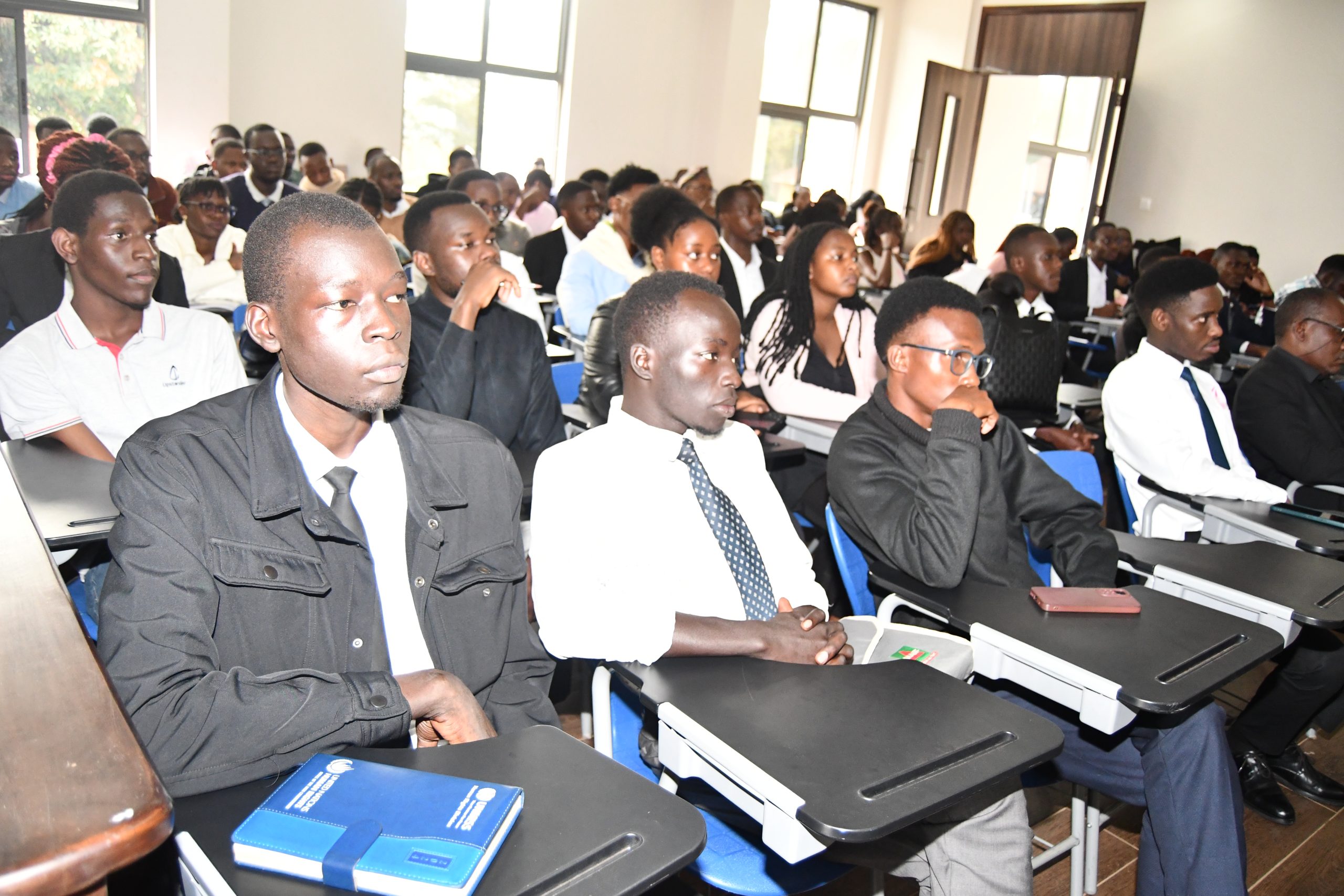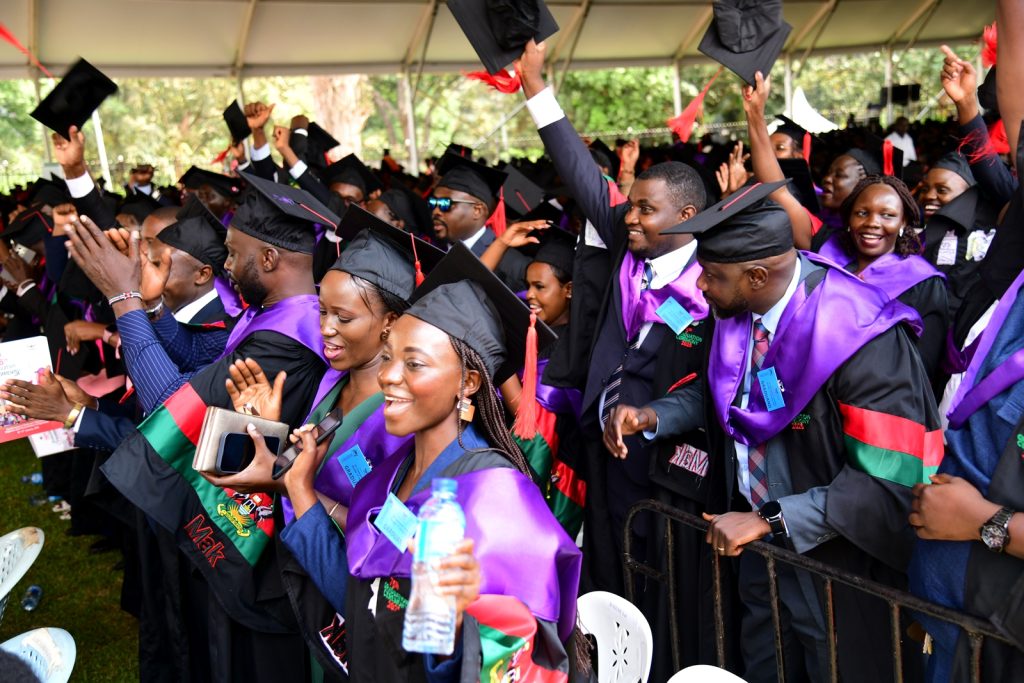Clinical Legal Education Students In The 2nd Moot Court Before Real Judges
The Clinical Legal Education students under the Public Interest Law Clinic in the School of Law were before a set of five judges as one of the experiential learning methodologies used in training a new cadre of practical oriented lawyers.
The theme of the Moot Court premised in the health area with a subtheme in disability. It was aimed at creating an opportunity for student learning but also make them appreciate factors affecting access to Justice in the contemporary world.
The second in a series of activities, the moot court was conducted before a panel of five judges namely Lady Justice Lydia Mugambe, from Civil division, Hon. Justice MasaluMusene, the Head Criminal Division,Hon Lady Justice Elizabeth Nahamya, Hon. Lady Justice Jane Alivdza and Hon Lady Justice Elizabeth Kabanda.

The event was also graced by the head of the Court, Principal Judge Hon. Justice YorokamuBamwine. While giving counsel to the law students, the Principal judge said the Judiciary is proud to be associated with the Law students given that they too are products of the Law School formerly called the faculty of Law.
He described the moot as a great teaching innovation and that the Judiciary itself is grappling with ways of getting new innovations to ensure justice reaches the masses.
He illustrated innovations that the judiciary has embraced like plea bargaining and mediation adding that as students who are destined to join them the judiciary, their contribution will be of necessity to help assist parties come together.

He said todate the judiciary is grappling with a challenge of backlogs which work will be there even when the current students join them at work. He however informed them that effort geared towards improving service delivery were underway through innovations like the gadgets used to help hide the identify of young children in the courts of law.
He applauded the work at PILAC which he described as Innovation at work, saying that there is no better way of imparting hands on legal skills than enabling the students to do it themselves.
Citing from a recently launched report on Justice needs in Uganda, the Principal Judge mentioned that 88% of Ugandans experienced one or more serious difficulties to resolve in the last four years. 28% of them went to local council courts, while 21% went to Police and 5% sought assistance from Law out of which only 1% sought assistance from Lawyers. This is against the need to have a lawyer for everyone.
He therefore paused a question as to whether lawyers were using their positions to transform society and contributing to progress.

He urged the learning lawyers to lead a purpose driven lifestyle and that if they wanted to succeed, theyshould endeavour to have guiding principles of hard work, self-improvement and integrity.
The Ag. Principal School of Law Dr. Damalie NaggitaMusoke called for increased collaboration between the judiciary and the School of Law. She mentioned that the Public Interest Law Clinic in the School of Law has continued to make efforts towards training law students practically through Clinical Legal education, the Community Law Mobile Clinic and the Network of Public Interest Lawyers (NETPIL).

She said efforts are underway to help the clinic to register in order to offer legal aid services to the indigent persons in society.
Headed by Dr. Christopher Mbazira, the Public Interest started in 2012 and uses practical means to teach a new breed of law students with a bias towards public interest law, serving the least served members of the community.



